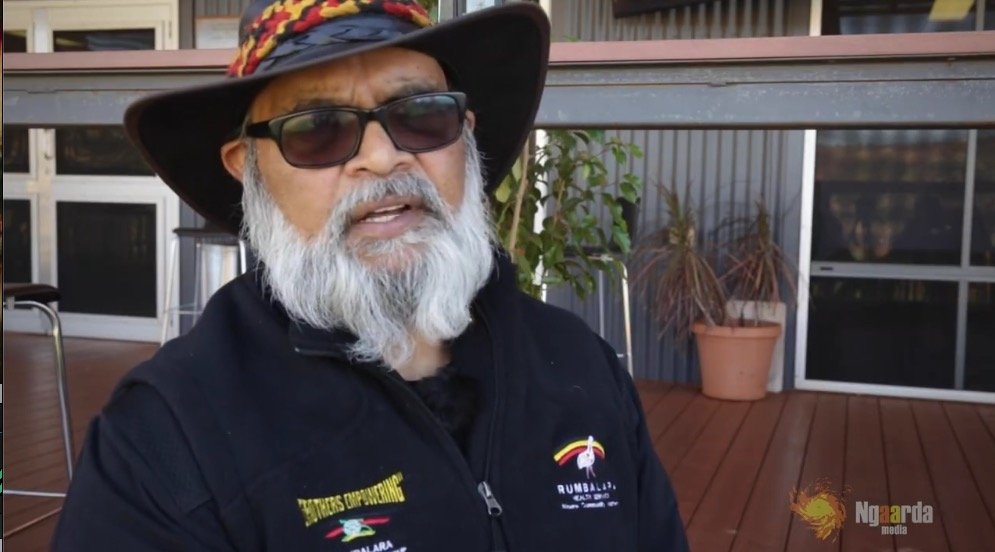'WE'RE BEING OVERLOOKED": DEVON CUIMARA CALLS FOR URGENT ACTION ON MENTAL HEALTH AND MALE VOICES IN THE PILBARA
BY TANGIORA HINAKI
Aboriginal Males Healing Centre founder Devon Cuimara says First Nations men in the Pilbara are being sidelined in national conversations about mental health, despite rising rates of suicide, incarceration and homelessness, and warns that without culturally informed, grassroots solutions, these issues will only worsen.
Speaking with Ngaarda Media ahead of National Sorry Day, Cuimara criticised governments and institutions for focusing on symbolic gestures rather than genuine, grassroots solutions, particularly in response to the recent protests regarding missing men in the Pilbara.
“We’re progressing at baby steps, not breakneck speed,” Cuimara told Ngaarda Media. “The thing is, we lack a voice, as Indigenous men. We’re not at the table in federal, state or even local discussions about family violence or mental health.”
Cuimara’s organisation, the Aboriginal Mens Healing Centre, provides culturally informed support for Aboriginal men who use violence, aiming to break cycles of harm by addressing intergenerational trauma.
He said the mental health challenges facing Aboriginal men are often misdiagnosed or ignored altogether.
“We’re walking around undiagnosed with complex post-traumatic stress disorder. We’re being labelled as abnormal. And until that changes, the statistics—incarceration, suicide, violence—won’t shift.”
WA STATE GOVT BACKS AFL MENTAL HEALTH ROUND
Cuimara’s comments follow the WA Government’s endorsement of a proposed AFL ‘mental health round’ in honour of the late West Coast Eagles player Adam Selwood. While acknowledging the importance of destigmatising mental health, Cuimara questioned the double standard in how Australia responds to different communities in crisis.
“Of course it's symbolic. When a high-profile sportsman passes away, everyone wants a piece of that story. But when Aboriginal men disappear in the Pilbara, not a single male voice is heard. Where is the outrage? Where is the national response?”
FIFO WORKER DIES IN NEWMAN
Cuimara also addressed a recent incident in Newman, where a FIFO worker reportedly died of a heart attack after being restrained by five people, which included police officers at a local hospital. The man had voluntarily sought mental health support before the situation escalated fatally.
“This man was working hard, putting food on the table—and he died after seeking help,” Cuimara said. “It shows a complete lack of training and understanding around mental health in the regions. That’s on the system. That’s on the government.”
He said the state's regional services remain under-resourced and culturally inappropriate, especially when it comes to de-escalation and mental health intervention.
“Government keeps throwing good money into bad ideas. What they need to do is listen—to people like us working on the ground every day with people in crisis.”
Cuimara said he’s willing to engage with WA Health and other agencies, but not as a token consultant.
“I’ve already seen my ideas taken and repackaged by others. This is my intellectual property. This is lived experience. If we’re serious about justice reinvestment, healing, and breaking cycles, then you can’t keep cutting us out of the conversation.”
ABORIGINAL MENS HEALING CENTRE IN NEWMAN
The Aboriginal Mens Healing Centre is working to establish a residential facility in the Pilbara to support men who use violence—a model that Cuimara says has already been co-opted by others without proper consultation or credit.
“Colonisation didn’t just steal our land. Now they’re stealing our ideas too.”
As National Sorry Day approaches, Cuimara is urging all levels of government to move beyond performative gestures and address the structural barriers preventing Aboriginal men from accessing culturally safe healing pathways.
“You can’t start a clean page in this country until you deal with First Nations people properly. The curse isn’t ours—it’s theirs.”


